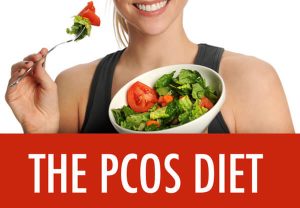Polycystic Ovary Syndrome (PCOS) is a hormonal disorder affecting women, marked by hormonal imbalances that can impact overall health. One crucial dietary aspect in managing PCOS involves the inclusion of healthy fats. Incorporating these fats is essential for maintaining hormonal balance, supporting metabolic health, and reducing inflammation associated with the condition.
Understanding PCOS and Its Dietary Influence
PCOS brings hormonal imbalances and metabolic irregularities, emphasizing the significance of dietary adjustments in managing its symptoms. Proper nutrition, including healthy fats, plays a pivotal role in mitigating the impact of PCOS on hormonal balance.
Importance of Healthy Fats in a PCOS Diet
A. Role of Healthy Fats in Hormonal Regulation
Healthy fats aid in hormone production and regulation. They contribute to stabilizing insulin levels and decreasing androgen production, addressing some common PCOS-related symptoms.
B. Benefits of Healthy Fats for Metabolic Health
Incorporating healthy fats helps manage insulin resistance, a prevalent issue in PCOS. These fats promote better blood sugar control and may reduce inflammation, benefiting overall metabolic health.

Types of Healthy Fats Suitable for PCOS
A. Unsaturated Fats
Sources like avocados, olive oil, nuts, and seeds provide monounsaturated and polyunsaturated fats. These fats support heart health and hormone production, making them valuable in a PCOS diet.
B. Omega-3 Fatty Acids
Omega-3 fatty acids found in fatty fish (salmon, mackerel), flaxseeds, and walnuts possess anti-inflammatory properties. They may help in reducing inflammation associated with PCOS and supporting insulin sensitivity.
Incorporating Healthy Fats into a PCOS Diet
A. Meal Planning Strategies
Balanced meal plans that emphasize healthy fats ensure an adequate intake while maintaining overall dietary balance. Including these fats in meals promotes satiety and aids in hormonal regulation.
B. Portion Control and Balance
Understanding the importance of portion control and balanced fat intake is crucial. Moderation is key to incorporating healthy fats without overconsumption.

Professional Guidance and Conclusion
A. Importance of Professional Advice
Seeking guidance from healthcare professionals or dietitians is recommended for personalized fat intake aligned with individual needs and health conditions.
B. Conclusion: Optimizing PCOS Management with Healthy Fats
In summary, the inclusion of healthy fats in a PCOS diet plays a vital role in managing symptoms by supporting hormonal balance, improving metabolic health, and reducing inflammation associated with the condition.




